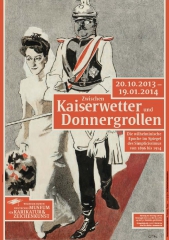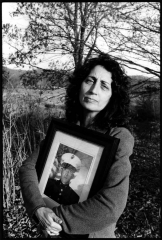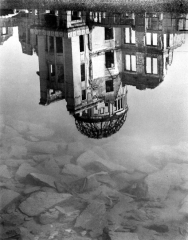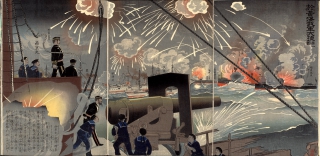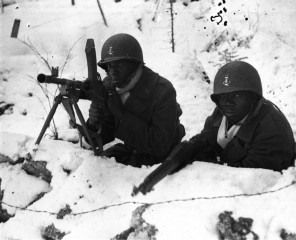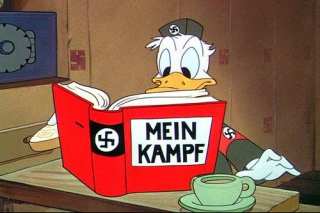On 3 November 2017, the Australian Broadcasting Corporation (ABC), an Australian public broadcaster, published the virtual reality application “Kokoda VR” free of charge. In 12 chapters, one can learn much about the fighting in Papua New Guinea between June and November 1942 when the Japanese forces tried to get to the south coast and thus the capital Port Moresby via the now famous Kokoda Track.
Tag: Japan
Berlinale 2016: Films that address War
Zwischen Kaiserwetter und Donnergrollen (Hanover)
From 20 October 2013 until 19 January 2014, the “Wilhelm Busch – Deutsches Museum für Karikatur und Zeichenkunst” (German museum of caricature and the art of drawing, named after Wilhelm Busch) in Hanover will present the exhibition “Zwischen Kaiserwetter und Donnergrollen – Die wilhelminische Epoche im Spiegel des Simplicissimus von 1896 bis 1914” (between “Kaiserwetter” (an old expression for splendid weather) and rolling thunder – the Wilhelmine era in the mirror of Simplicissimus between 1896 and 1914). Since its foundation in 1896, the satiric magazine “Simplicissimus” held the proverbial mirror up to the German society that in the years before the First World War was shaped by domestic and international crises and societal, cultural and technological changes. The exhibition centres around originals of leading satiric fin-de-siècle artists such as Thomas Theodor Heine, Eduard Thöny, Olaf Gulbransson, Bruno Paul, Karl Arnold, Rudolf Wilke, Wilhelm Schulz and Ferdinand von Rezniček.
 Continue reading “Zwischen Kaiserwetter und Donnergrollen (Hanover)”
Continue reading “Zwischen Kaiserwetter und Donnergrollen (Hanover)”
Marissa Roth: One Person Crying – Women and War (Berlin)
From 8 March until 3 April 2013, Berlin-based Willy-Brandt-Haus presents the exhibition One Person Crying: Women and War with photos by Marissa Roth. Since 1984, the Pulitzer Prize laureate (born in 1957 in Los Angeles) is dealing with this issue: back then, she travelled to the Yugoslav homeland of her Jewish grandparents who had been murdered in 1942 by Hungarian Fascists. In 1988, she was assigned by Los Angeles Times to portray Afghan women refugees. The subject remained crucial for her work: One Person Crying: Women and War addresses the effects of war on women within their respective societies. Continue reading “Marissa Roth: One Person Crying – Women and War (Berlin)”
Opening: Metamorphosis of Japan after the War. Photography 1945-1964 (Berlin)
Yasukuni Shrine in Tokyo without Japanese Government Members
Since the end of the Second World War, every year on 15 August (the day of Japanese surrender) Japanese members of government visit the Yasukuni Shrine in Tokyo. But Prime Minister Naoto Kan, elected on 4 June 2010, who some days ago already apologised for the colonial rule 1910-1945 to South Korea, continues his reconciliatory approach: for the first time since 25 years, no member of the government attended the anniversary’s ceremonies.
Continue reading “Yasukuni Shrine in Tokyo without Japanese Government Members”
Japanese Prime Minister Apologises for Colonial Rule
On 10 August 2010, Japanese Prime Minister Naoto Kan apologised to the Republic of Korea for the Japanese colonial rule of the Korean peninsula between 1910 and 1945. Such a move was eagerly anticipated – not just in the ROK – and may be viewed as a different Japanese approach to remembering a dark chapter of its history.
 Continue reading “Japanese Prime Minister Apologises for Colonial Rule”
Continue reading “Japanese Prime Minister Apologises for Colonial Rule”
Opening: The 3rd World in World War II (Osnabrück)
The ambitious exhibition “The Third World in World War II” travels to Osnabrück to the Erich Maria Remarque-Friedenszentrum. A “forgotten chapter in history” is to be illuminated, according to the curators.
 Continue reading “Opening: The 3rd World in World War II (Osnabrück)”
Continue reading “Opening: The 3rd World in World War II (Osnabrück)”
Donald vs. Hitler (Spiegel)
In the German news magazine Spiegel, Sven Stillich published a short article on animated short movies that had been produced in the USA during the Second World War. Stylistics and motivation were quite different. The most known movie will be Disney’s “Der Fuehrer’s Face” from 1943, in which Donald Duck has a nightmare in “Nutzi Land”.
Continue reading “Donald vs. Hitler (Spiegel)”

